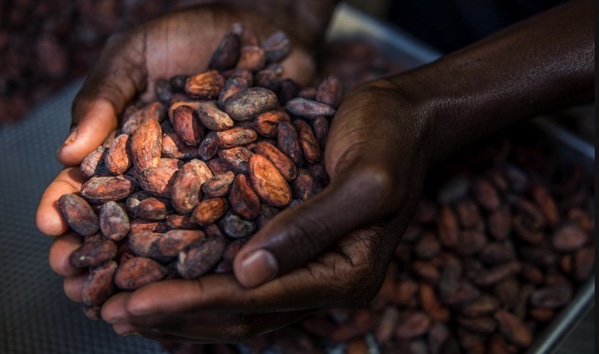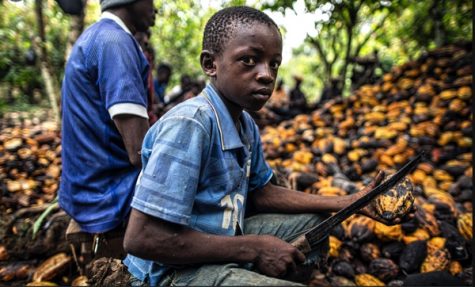The Hidden Slavery in the Chocolate Industry

We can usually find a multitude of chocolate or candy bars in the checkout line from a variety of companies, and pure chocolate can be found in abundance at any grocery store. The packaging, usually brightly colored and enticing, can draw you in. But the cheery display and mounds of sugar hide the dark truth: the rampant child slavery supporting the cocoa industry.
Nestlé, Hersheys, and Mars are just a few of the major companies that source at least 60% of the world’s cocoa from cocoa farms in the Ivory Coast and Ghana, where trafficked children work for little to no wages. Most are between twelve and sixteen years old, but some as young as five have been discovered working there. Originally, these companies signed agreements to eliminate child labor in West African cocoa farms, yet they missed the initial deadline of 2005 and are not expected to meet any future ones, with next to no change in their current practices. When asked, most executives and representatives can’t even definitively identify whether child labor was used to source their cocoa. In fact, these companies are able to trace back less than half of their cocoa supply to farms.
 These laborers face terrible working conditions. Using chainsaws to cut trees and machetes to hack through cocoa pods, many of the workers have scars. Though some were forced into the backbreaking work to support their families, their paltry wages are hardly enough to provide basic resources, let alone afford schooling or medicine. Instead, all the money from the profitable industry is sucked up by the corporations. When interviewers and certificate auditors try to investigate their practices, the farmers in charge often try to hide the children or force them to lie.
These laborers face terrible working conditions. Using chainsaws to cut trees and machetes to hack through cocoa pods, many of the workers have scars. Though some were forced into the backbreaking work to support their families, their paltry wages are hardly enough to provide basic resources, let alone afford schooling or medicine. Instead, all the money from the profitable industry is sucked up by the corporations. When interviewers and certificate auditors try to investigate their practices, the farmers in charge often try to hide the children or force them to lie.
However, there are several companies that have taken tangible and effective steps to sourcing their cocoa completely slave-free. Fairtrade is a label that can be found on various goods and crops, including cocoa products. It’s a nonprofit organization that advocates for various issues such as worker’s rights and climate change. One of their key issues is child labor, so finding their label on a product guarantees that the company sourced their cocoa ethically. Guittard chocolate, for example, has taken steps to verify that the farms they source from do not use slavery or human trafficking. Other companies with ethically sourced chocolate include Divine Chocolate Co., Karuna chocolate, Valrhona, and more. Though they may cost a bit more, the price is well worth the relief of knowing that young children weren’t forced to slave away for the sweets.

Aleena is the Editor-in-Chief of the Keynote and a senior at Keystone. She enjoys reading, writing, and baking in her spare time and looks forward to discussing...
